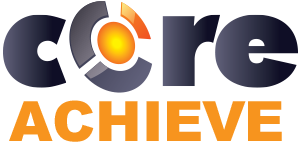Top 10 Must-Have Features in Your Enterprise LMS
August, 31 2023
Other posts:
Enhancing Team Dynamics for Effective Group Decision-Making with LMS Integration
Organizations increasingly rely on collaborative efforts to solve complex problems, innovate, and adapt to change, but how do we ensure that collaboration is happening.
Maximizing Small Business Potential with Training Technology
Training technologies can push small businesses ahead of their competitors, but what are the factors that go into choosing the right technology?
Unlocking Employee Potential: The Transformative Benefits of an Interactive Learning Management System (LMS)
Interactive training allows for unlocking employee potential, but how is it done?
Building a Robust Sales Pipeline with Training
Every organization wants a streamlined sales pipeline, but building one requires a series of interlocking activities with one of the most important being training.
Strategies for Adapting In-Person Training to Online Platforms
Online training is one of the most flexible ways of delivering training across organizations, but how do you even begin to adapt in-person training into online?
Not all Learning Management Systems are the same. Some are missing necessary features for wide-scale adoption and will not fit an enterprise. These are some of those features.
Learning and development is essential for enterprises to stay competitive. However, delivering training—without the proper tools—on a wide scale becomes exponentially more challenging with the size of an organization. Remedying this, a Learning Management System (LMS) makes distributing training far easier but, with many LMS options, how does an organization find one that truly fits? Here’s 10 things to look out for in an enterprise LMS.
Scalability
Your Enterprise LMS should be able to grow with your organization. Whether you're a mid-sized business or a large multinational corporation, scalability is crucial. An enterprise LMS being able to scale up is essential, however, scaling down should not be overlooked.
Training could happen periodically and be scaled down with a platform like CoreAchieve to save resources.
Customization and Branding
The bigger and more spread out your enterprise, the more difficult it can be to create a cohesive identity. An enterprise should invest in customization options, such as logo integration, color schemes, and the ability to tailor the user interface, are essential for creating a seamless and branded learning experience.
User-Friendly Interface
A user-friendly interface is vital for encouraging adoption and engagement. Your LMS should be intuitive and easy to navigate, even for employees who may not be tech-savvy. Look for features like drag-and-drop course builders and clear, concise dashboards.
Mobile Compatibility
Most people have mobile phones today—even more than laptops or desktops—so mobile access to an LMS is a must. Ensure that your Enterprise LMS is responsive and offers a user-friendly experience on smartphones and tablets. This flexibility allows employees to access training on the go, enhancing convenience and accessibility.
Content Authoring Tools
Creating and updating training content should be a straightforward process. Your LMS should offer content authoring tools that allow you to design interactive and engaging courses without requiring advanced programming skills. Look for features like built-in templates, multimedia support, and assessment builders.
Robust Reporting and Analytics
Data-driven decision-making is key to improving training effectiveness. Your LMS should provide comprehensive reporting and analytics features. This includes the ability to track learner progress, assess course effectiveness, and identify areas for improvement. CoreAchieve gives automatic and customizable reports.
Compliance and Certification Management
For regulated industries, compliance and certification tracking are non-negotiable. Your Enterprise LMS should support compliance training by automating certification tracking, notifying employees of expirations, and maintaining a complete audit trail.
Integration Capabilities
To maximize the value of your LMS, it should seamlessly integrate with other software and systems your organization uses, such as HRIS, CRM, or content libraries. Integration capabilities ensure that data flows efficiently, reducing manual data entry and errors.
Social Learning Features
Encouraging collaboration and knowledge sharing among employees is essential. Social learning features, like discussion forums, chat rooms, and collaborative projects, foster a sense of community and enable peer-to-peer learning. Look for an LMS that promotes social engagement.
Security and Compliance
Protecting sensitive employee and training data is paramount. Your Enterprise LMS should adhere to industry-standard security protocols, including data encryption, access controls, and regular security updates. It should also comply with data privacy regulations, such as GDPR or HIPAA, if applicable to your organization.
Selecting the right Enterprise LMS is a critical decision that impacts your organization's learning and development initiatives, employee engagement, and ultimately, your business's success. By prioritizing these must-have features—scalability, customization, user-friendliness, mobile compatibility, content authoring tools, reporting and analytics, compliance management, integration capabilities, social learning, and security—you can ensure that your LMS aligns with your enterprise's goals and empowers your workforce to thrive in today's competitive environment.
Get started with CoreAchieve today for free.
Photo by Sean Pollock on Unsplash

Leave comment: